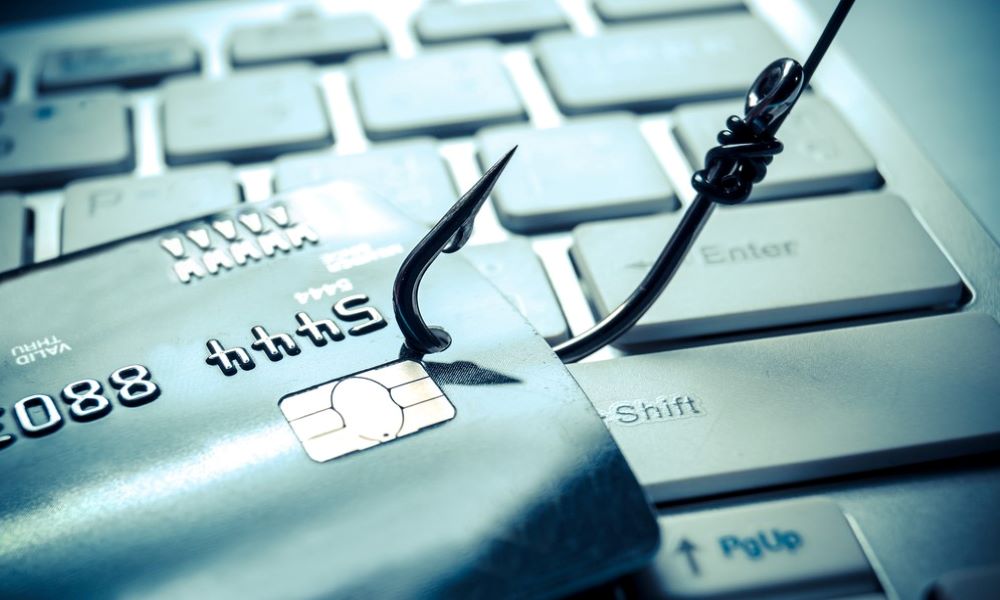What Is a ‘Pig Butchering’ Scam and How to Recognize It
 Credit: Kenneth Shipper Vera
Credit: Kenneth Shipper Vera
Toggle Dark Mode
Scams are a dime a dozen these days. Unfortunately, many people are always trying to get the better of you and get a hold of your data and your hard-earned money.
The worst part is that scams are constantly evolving. Even if you know how to take care of yourself against the most common scams, there are others you probably haven’t heard of.
Enter the Pig Butchering scam. Sure, the name might sound a bit too overwhelming, but it actually suits this scam pretty well.
And in a world where it’s so easy to invest in many different “assets,” cybercriminals are using the Pig Butchering scam to scam you out of as much money as possible. If you want to stay safe, keep reading to find out everything you need to know about the Pig Butchering scam.
What Is the Pig Butchering Scam?
The Pig Butchering Scam is a scheme in which a crook contacts a random person in a friendly way. Once they start talking and the person feels comfortable, the criminal will then tell the victim about an amazing “investment” opportunity they have.
The goal is to convince the victim to send the fraudster money every now and then because the person on the receiving end is duped into thinking the scammer is making more money for them with this magical investment.
Once they have enough money, the scammer will just block or ghost the victim who has just lost all the money they sent.
In case you’re wondering, it’s called “pig butchering” because the scammer is “fattening up” the person they’re talking to so they can “butcher” them by taking their money.
How Does Pig Butchering Work?
While the Pig Butchering scam mostly happens in dating apps, it can happen on any form of social media.
The scammer starts by finding a victim to become friends with, although it works best if they manage to get romantically involved with them — which is why this scam is more popular in dating apps like Tinder.
The scammer will then spend time talking to the person and “getting to know them” until they gain their trust. Once this happens, they’ll introduce the person to an investment that they claim is already making a lot of money for them. Nowadays, that could be something like a crypto investment or even an NFT.
The criminal will then send fake images of all the money they’ve made with this investment and ask their mark to send some money so they can invest it for them.
They’ll typically start with a small amount of money, which they’ll use to show you “proof” that the investment is paying off — your $100 may become $1,000, for instance. Once you’re hooked on the easy gains, they’ll ask for more money.
Once they consider it to be enough money, they’ll just block you or close their account entirely.
Signs That You Might be a Target
While each case can be unique in its own way, there are a few signs that will help you understand where you might be a target of a pig butchering scam. These are just some examples, but you need to be aware that there might be more.
Someone Contacts You Out of Nowhere
If a person starts talking to you because they “got the wrong number” or just “found your profile” on social media, that’s usually a sign that they might be up to something — and that’s often mostly some type of scam, even if it’s not a pig butchering scam.
With dating apps, this is trickier to avoid since the whole reason you’re there is to meet new people. This is why a lot of scammers use dating platforms for their scams.
They’re Immediately Into You
Again, this is tricky to tell in a dating platform, but scammers need to work fast. To gain your trust, they need to make you feel like they completely trust you or they’re madly in love with you.
They Don’t Want to Do a Video Call
This is the clearest way to know something fishy is happening. If you’re talking to someone, but they don’t want to do a video call or meet up in person, then they might be hiding something.
They could either be trying to scam you or they might simply be “catfishing” you, which is another big problem on social media. Either way, it’s not good.
They Start Talking About Investing
If the person you’re talking to starts to randomly talk about investments, and they don’t want to shut up about it, there’s a good change they’re warming you up for a scam.
Be wary of the way they talk about their investments, too. If they’re talking about their investment like it’s the holy grail and like it would make you a millionaire in a few weeks, then it’s best to stay away.
They Ask for Financial Information or Support
This is when you know you should stop talking to the other person. If they start asking for financial information about you, it’s best to just stay away and block them. Even if it’s not a pig butchering scam, there’s a lot more they can do with your financial information, and it’s best to keep your private information private.
Likewise, if you’ve been talking for some time, they might also feel “comfortable” enough to ask you for money. Needless to say, you should never give money to a person you recently met unless you already know you won’t see that money ever again.
How to Avoid the Pig Butchering Scam
Remember that scams can fool anybody; even if you’re careful all the time, you’re not “invincible.” So don’t just think that no one will scam you because it’s happened to people far more experienced than us.
With that said, here are a few ways that you can stay safe while dating or talking to people online.
- If It Seems Too Good to Be True, Stay Away. Remember that if something is too good to be true, it probably is. There aren’t any investments out there that will make you rich in just a few days — and if they were, why would anyone be willing to share that information with a stranger?
- Research the Investments They Offer You. All of these investments are almost sure to be false, but if you’re really curious, just ask around online and do your homework. Any investment worth sinking your money into will have plenty of information available online. Likewise, you can also find information about investments people use to scam others.
- Make Sure You’re Talking to a Real Person. Most times, the scammers will build a fake profile in order to reach out to you. So you need to make sure that the person you’re talking to is actually who they say they are.
If you can’t find information about them on Instagram or Facebook, or they don’t want to show their face in a video call, then you’re probably talking to a scammer. - Don’t Click on Any Links. Sometimes, instead of asking for money, the scammer will ask you to download an app or go to a website so you can check the “investment” yourself.
Don’t do this. Ever.
It should go without saying that you should never click on a link a stranger sends you. This link could potentially install something on your device or try to grab some data from you. - Don’t Give Your Money to Strangers. This should be your number one rule in general, but you shouldn’t give money to anyone you just met online. It’s better to use that money on a charity or a content creator you like.
Besides money, you should also try to avoid giving the other person any more information than absolutely necessary. Any information they can get can be used either against you or against people you know. Even your full name is usually too much.
Stay Safe Online
The Pig Butchering scam is just one of hundreds of scams you can fall for. Remember that even experts have been scammed, so regular people like us need to be even more careful online.
It’s okay to use dating sites to meet new people, but be sure to know the person in real life before you trust them. And under no circumstances should you share personal information or money with people you meet online.











